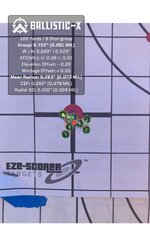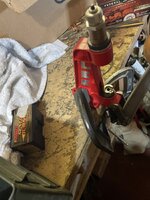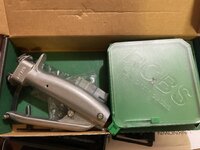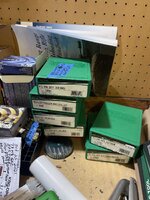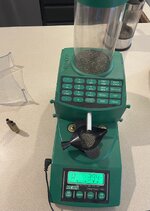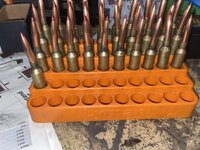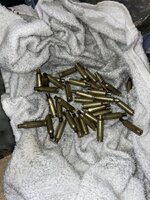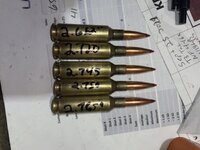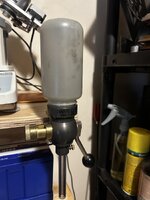The 308 Palma brass was something we produce at the request of the US Palma team. In years past, Remington used to sell what they called UBR brass (Universal Bench Rest, as I recall). This was a special, thin walled case in 308 Win configuration, that had an exceptionally heavy anneal and a small primer pocket. At the time, Remington was selling guns chambered for the 22, 6mm and 7mm BenchRest cartridges. While I think they did sell 7mm BR ammo, they didn't produce either the 22 or 6mm BR cases or ammo. The UBR brass was intended to be formed into any of these cases. As the end product after reforming had a significantly smaller combustion chamber, it was better suited to a Small Rifle Primer, and the cases were designed and produced to that end. Somewhere during the process, Long Range Prone shooters tried the cases, originally due to their thin-walled design and somewhat greater case capacity. What they found was that the Small Rifle Primers didn't seem to be nearly as finicky about lot selection as Large Rifle Primers used in this same application usually are. Many shooters don't appreciate the need for selected primers in 1,000 yard loads, but it makes a significant difference in on-target performance. While some lots give horrific vertical spread, another lot of the same type and brand of primer may reduce that spread to sub X-ring elevation. This is quite common for the Large Rifle primers, but not nearly so pronounced in the case of the Small Rifle primers. Anyway, for that reason alone, many Long Range shooters began using the UBR cases "as is", in the original 308 configuration. Remington has long since adopted the 6mm and 7mm BRs, and cases and ammunition are now readily available for both. The 22 BR still exists in semi-wildcat form, but most shooters of that cartridge now make their cases from the 6mm BR. Lot easier that way anyway. As a result, Remington dropped the UBR cases many years back.
Wanting the same ease in dealing with primer lot selection as they'd had with the UBR cases, members of the US Palma team approached us about producing a case along these lines, which we did. It's dubbed (naturally) the 308 Win Palma case to differentiate it from our standard production 308 Win case using the normal large rifle primer pocket. It's been well received, and seems to offer the same sort of advantages as the old UBR brass. There is, however, no such thing as a free lunch. The case capacity of a full grown adult 308 case is about the maximum limit of what a Small Rifle primer will reliably ignite. Even then, it requires good conditions; fairly warm weather, a easy-to-ignite powder in the medium burning range, etc.. Moving to a very slow burning powder, a ball powder or firing in extremely cold weather can (and will) result in hangfires, misfires or both due to the primers capacity to ignite the charge having been exceeded. The mildest, softest primer that will reliably ignite a charge is almost always the most accurate. Large or small, big cases or smaller ones, that rule holds true. But in many situations, such as the hunting fields or certainly military operations, the need for absolute reliability trumps accuracy. So, while the 308 Palma case is used very successfully in competition, we do not recommend its use in any sort of hunting applications, cold weather or with difficult to ignite propellants, such as many of the ball powders. Hope that answers your question, but if there's anything more we can do for you, don't hesitate to let us know. Always glad to help.

